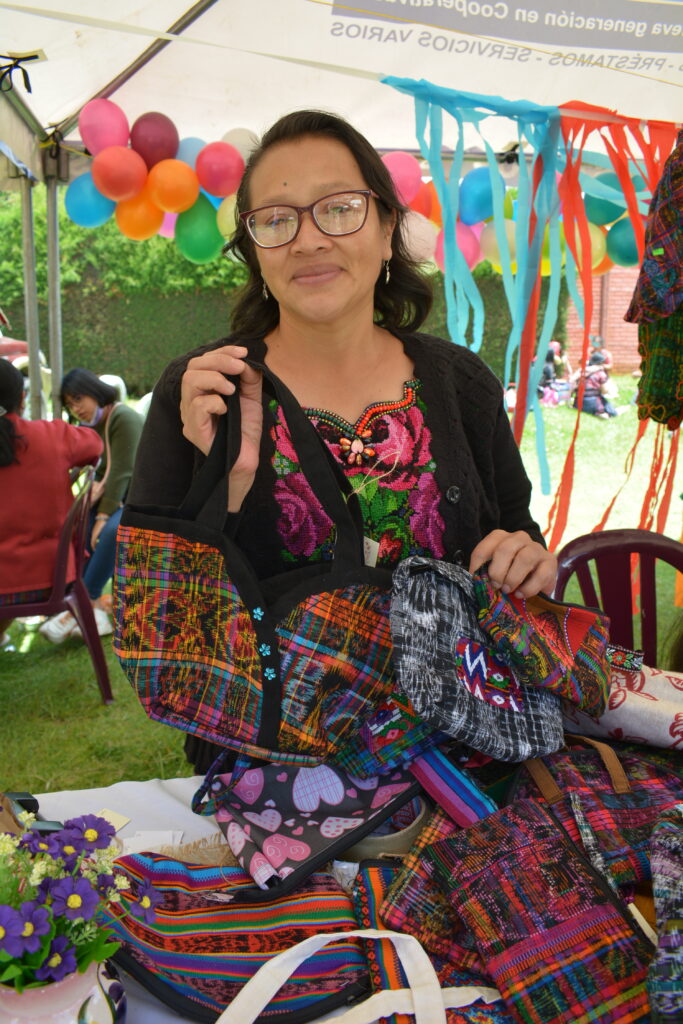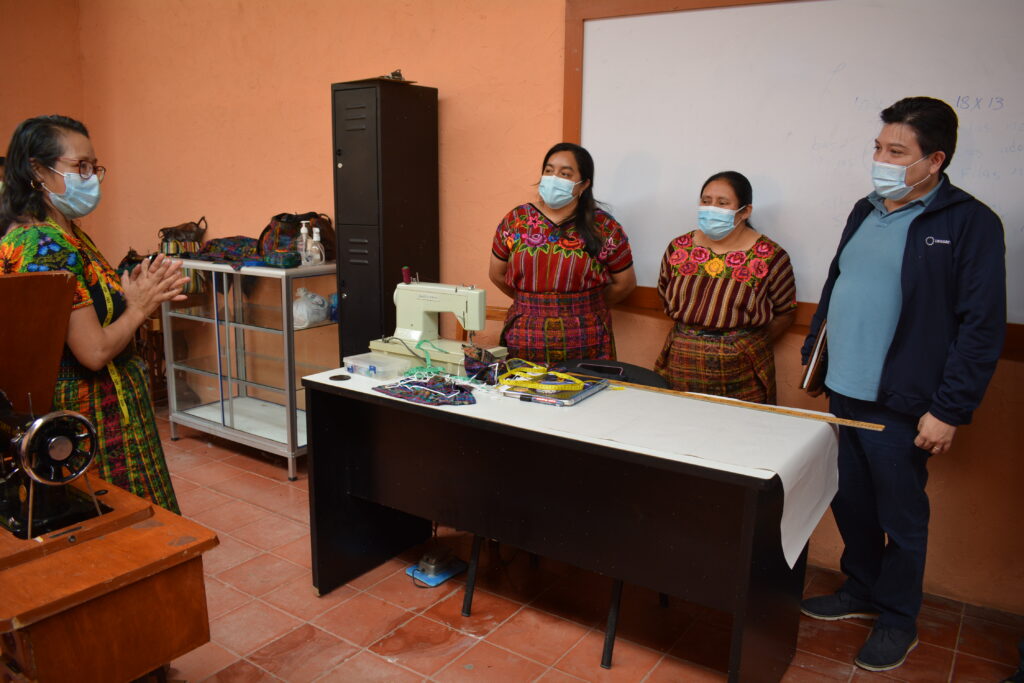Tecpán is a municipality in the department of Chimaltenango in the western part of Guatemala, located 87 kilometers from Guatemala City. The population consists mainly of the Kaqchikel Mayan ethnicity, primarily engaged in agricultural work. In this context, rural women are seeking opportunities to support their families’ income.
Here is where Mariela Ester Saquic Buchán lives, who is the head of her household due to her separation from her husband some years ago. To generate income for her home and children, she decided to undergo training at the Ixoqi’ Integral Training Center for Women, located in Tecpán. There, she received several technical courses – within ALMA Project – and her integration into the productive process was promoted.

“Yes, you learn a lot, and it helps women to start a business, to support our home. Because, in my case, I am separated. This has helped me a lot. It has encouraged me. It has been a therapy, besides support, for me. When I start to make a bag, I dedicate myself, look for what to combine. It entertains me. I am excited about this work.”
Mariela belongs to a group of indigenous women who received technical training in dressmaking for a year last year. They were awarded a diploma certifying their training, part of the ALMA Project – Accompaniment of rural women. This project is implemented by the Istituto per la Cooperazione Universitaria – ICU and financed by the European Union. Within the framework of the project, the Ixoqí Center aims to achieve economic empowerment and improve living conditions for 1,000 women, small producers, and their families living in vulnerable conditions. This is accomplished through the beneficiaries’ participation in processes involving technical and human training, production, and marketing of products such as handicrafts and food.
“At this time after the pandemic, everything has been very hard. In previous years, it has helped me a lot, and we hope that we can resume production as it was before. We want to promote our products. I hope that someone becomes interested in them and, by creating what they like, it can be either traditional or using regular fabrics according to the customer’s preference.”
The COVID-19 pandemic has affected many areas of the country. However, this initiative supports and accompanies economic reactivation to make women in the communities more resilient to it, as Mariela has done. She has improved her technical and entrepreneurial skills, as well as her self-esteem, to the extent that she has already started a small business called Creaciones Marielos, allowing her to have a decent job.
“I encourage all women to have it if they can. Because it is a time to be here, an investment that eventually brings benefits. And, for those who support us as well, we hope that they continue to support us. Because we learn, and it is very useful for society, especially for women.”



